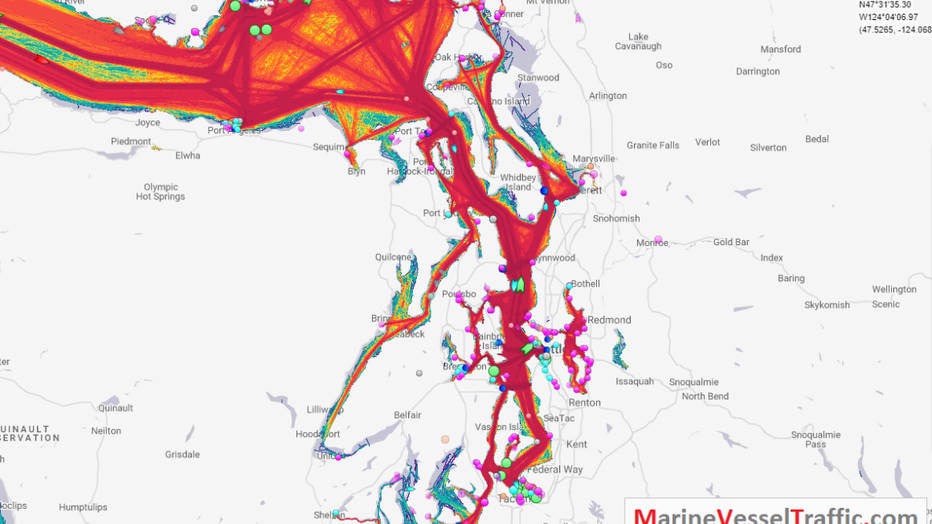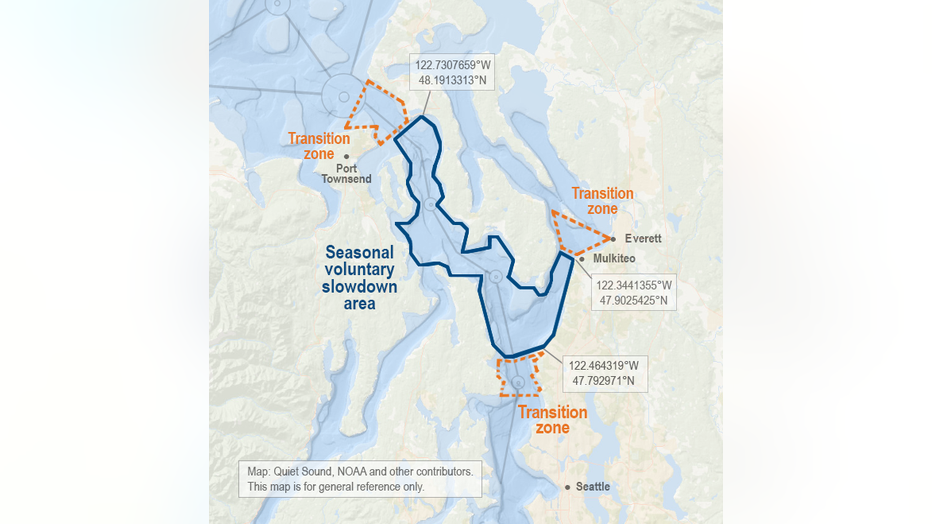Ships in North Sound to slow down to reduce noise pollution on orcas

Noise pollution and traffic harming southern resident orcas
Dr. Jason Wood, SMRU Consulting's managing director, told FOX 13 that their work aims at tracking, and coming up with strategies to drop noise volumes in the Northern Pacific Ocean is up against the clock.
SEATTLE - Some ships may be voluntarily slowing down as they cross north Puget Sound through the rest of the year, as part of the ‘Quiet Sound’ program to reduce underwater noise for killer whales.
During the fall and winter, killer whales become very active in the Sound, hunting salmon, swimming and resting. However, noise from ship traffic across the water interfere with their ability to communicate and hunt.
Killer whales use echolocation—similar to bats—to navigate. The noise pollution of ships throws this out of balance and can make it difficult to find food, research has found.

Marine traffic density on Puget Sound (Marine Vessel Traffic)
The ‘Quiet Sound’ program is a collaborative effort to cut down on the noise. In a trial effort running from Oct. 24 through Dec. 22, commercial ships can volunteer to slow down to cut down on "acoustic impacts" on the orcas.
"By slowing down, large vessels reduce their underwater noise output," reads the Quiet Sound website. "Quieter waters give orcas better opportunities to hunt and communicate with their pod."

Map of the trial slowdown area (Quiet Sound)
The trial slowdown will take place in Admiralty Inlet and north Puget Sound. Transition zones include the Port Townsend-Coupeville route, Possession Sound, and the Edmonds-Kingston route.
RELATED: Recreational boaters fined for getting too close to endangered Southern Resident orcas
Get breaking news alerts in the FREE FOX 13 Seattle app. Download for Apple iOS or Android. And sign up for BREAKING NEWS emails delivered straight to your inbox.
When possible, cruise ships, container vessels and vehicle carriers are encouraged to slow to 14.5 knots, and bulkers and tankers to 11 knots. Organizers estimate the reduced speed could add 10–20 minutes of travel time.
For more information, visit the Quiet Sound website.

